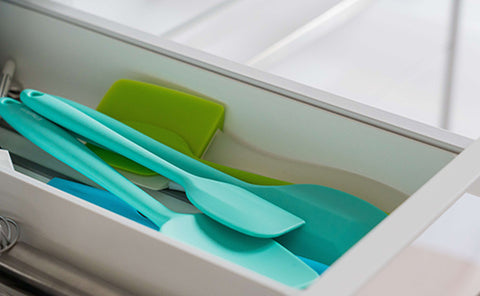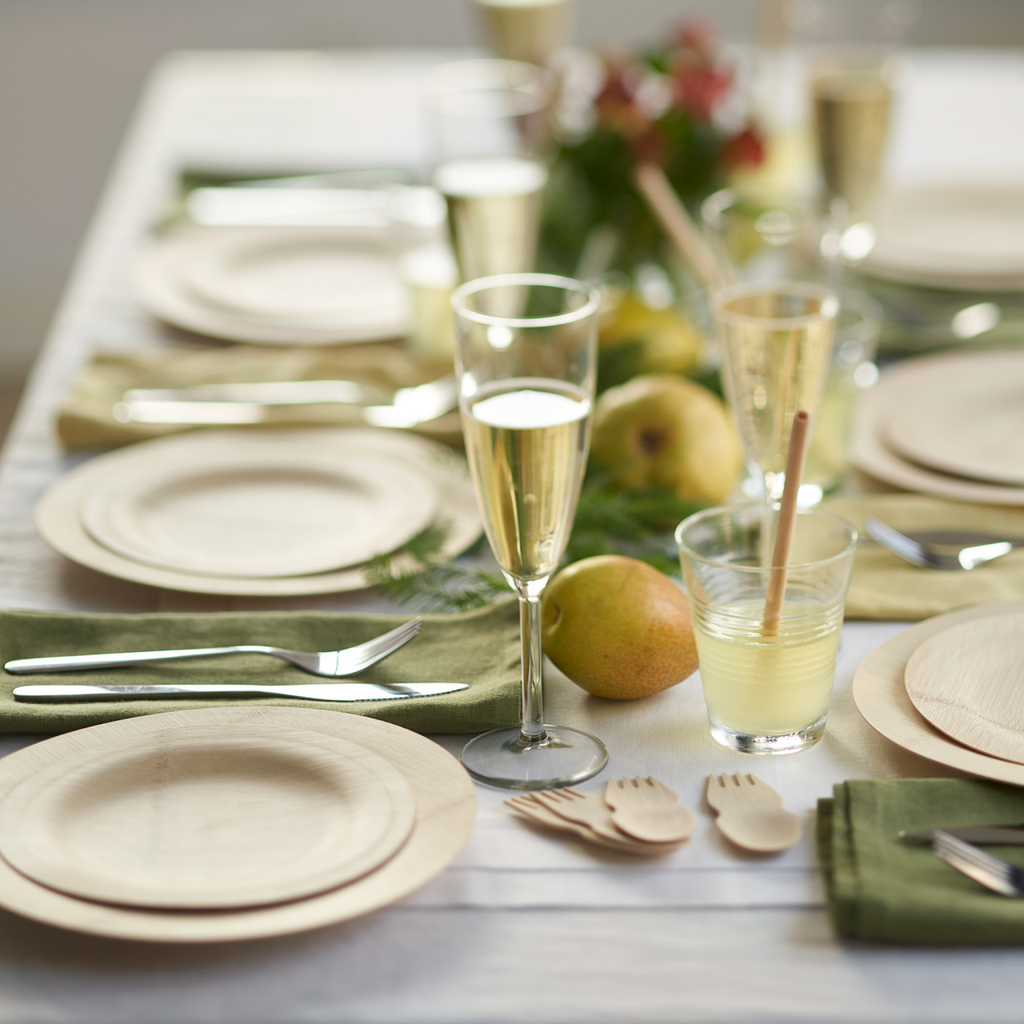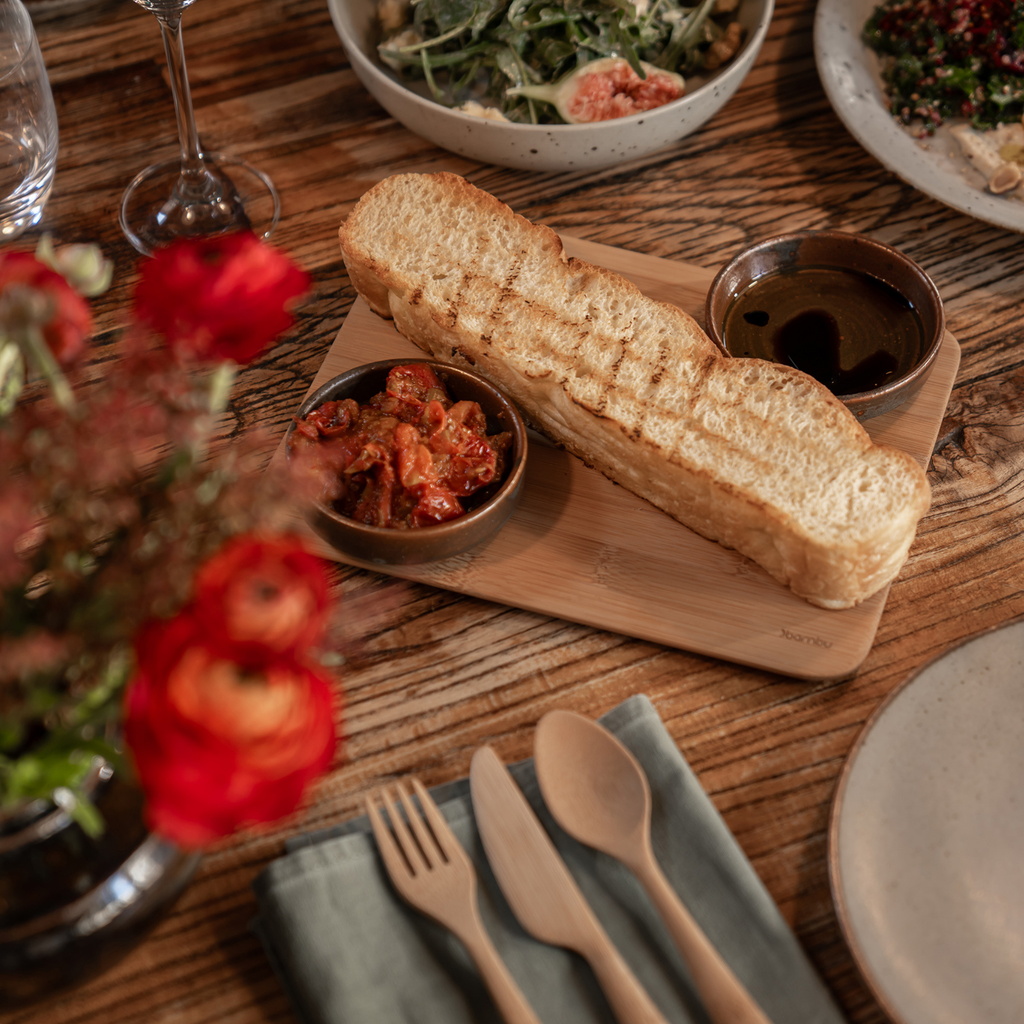From Michelin-rated chefs to home cooks, everyone needs a set of kitchen utensils they can trust. So from bamboo kitchen utensils to silicone, we’re breaking down three of the most popular options to help you find your best set– whether it’s your first or your 15th.
A good spoon or spatula might seem simple. But in reality, the right kitchen utensils set can make or break your meal. Have you ever experienced the frustration of a pancake you just can’t flip? Or, a spatula that seems to require hours of scrubbing before it’s free of food scraps? Then you know just how important these tools are.
Beyond the ease of cooking and cleaning, kitchen utensils also play an essential role in the safety of your meal. Some cookware on the market today is made of materials that have potentially dangerous health effects. So it’s important to understand just what you're stirring your soup with.
Ready to find your perfect kitchen utensil set? We’ve taken a deep-dive into the most popular materials, from their ease of use to their end-of-life. Read on and discover how your cookware stacks up (and what to choose next time).
Kitchen Utensils 101
Silicone
One of the newest options around, silicone is a nonstick plastic alternative made from silica. Silica is simply a component of sand. But, the process to turn it from sand to silicone requires many steps and the use of non-renewable resources. So, it’s not quite as natural as it seems.
Cooking Quality
Silky smooth to the touch, silicone cookware is the most non-stick option you’ll find. This makes it ideal for cooking eggs, sautéing, and other sticky tasks. However, with time, thin silicone utensils can soften and fail to provide a hard edge. This can make flipping finicky foods a challenge.
Durability
One of the hallmarks of silicone is its durability. You can expect silicone kitchen utensils to last for years without wear. But depending on the quality of the silicone, you might find some breakage on the edge of your utensil over time. This can cause small particles of silicone to end up in your food.
Safety
Because silicone is so new, the safety information about it is still developing. While some say that silicone is entirely non-toxic, other studies tell a different story. In fact, silicone is considered to be a potential endocrine disruptor. And, there is evidence that silicone can leech into food and drink with prolonged contact.
Sustainability
The durability of silicone does have a downside. And this is it. Your silicone spatula may last for years, but when it finally does see its final day, it’ll head to the landfill.
End-Of-Life
Silicone is not recyclable, so when its time is up, you’ll have to toss it in the trash. And it will take up to 500 years to decompose.
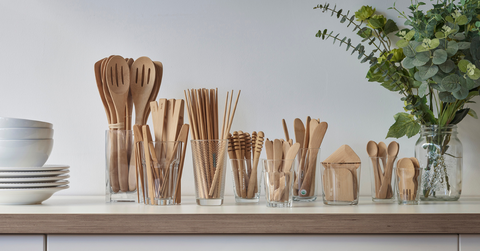
Bamboo Kitchen Utensils
Originating as a common Asian cooking material, this plant was one of the first to be fashioned into a utensil. And for good reason. Bamboo kitchen utensils are lightweight while remaining durable and heat resistant. They are one of the safest options on the market, and their renewable origins make them uniquely sustainable.
Cooking Quality
When produced with care, bamboo cookware offers supreme cooking functionality and versatility. It doesn’t transfer heat or cold, so you’ll never be surprised by a burning hot spoon, as you would with metal and plastic. And as a 100% natural material, bamboo will never transfer or impart flavors into your meal. Properly cured and finished bamboo is exceptionally strong, which means that it can be made into thin spatulas ideal for flipping and sautéing. And, bamboo has the best strength-to-weight ratio of any cookware material. This means that it’s the most lightweight option you’ll find. And, it’s supremely durable, too.
Durability
Because bamboo quality can differ greatly depending on how it’s made, bamboo may not seem to be “durable” at first glance. And it’s true– cheaply made utensils that are glued, lacquered, and not made to last, won’t. But at its core, bamboo is made with the strongest woody plant on earth. When it’s grown to maturity, well-cured, and properly finished, you can expect bamboo kitchen utensils to last for years. If you care for them well, even for decades. Bamboo is anti-microbial as well as heat resistant, which makes it less prone to cracking than other natural cookware options. And if a stain or chip does occur, bamboo utensils can be sanded down to get back to a like-new look.
Safety
When properly finished, bamboo is the safest cookware option, hands down. Choose bamboo kitchen utensils that are made without glues and lacquers, and you’ll enjoy natural cookware that will never tarnish your food with impurities. When sourced and manufactured responsibly, bamboo utensils are free of chemicals, dyes, and other contaminants.
Sustainability
Bamboo is at the top of the line here, too. Other materials require environmentally taxing production processes. And even wooden utensils can contribute heavily to deforestation. In comparison, bamboo is a fast-growing, renewable resource.
End-Of-Life
At the end of their life, bamboo kitchen utensils are completely biodegradable. This means that they break down completely into the soil at the end of their life. This means a clean, circular life cycle from start to finish. Bambu utensils can be safely discarded with yard debris or via a service such as Ridwell.
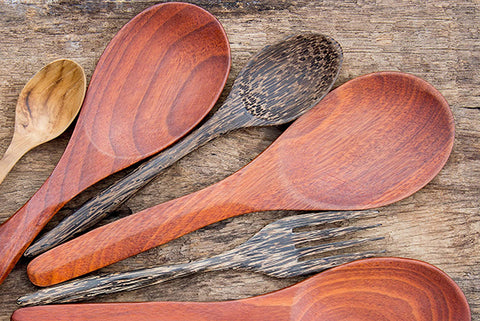
Wooden Kitchen Utensils
Cooking Quality
This natural material offers cooking quality similar to bamboo, with a few caveats. Like bamboo, wooden utensils are sturdy and don’t react much to heat, cold, or acidic foods. But unlike bamboo, wood is more susceptible to cracking. This can cause food particles to get stuck in the utensil, and make cooking and serving messier.
Durability
Because wood cracks more easily, these utensils won’t last as long as bamboo. But, hardwood utensils, like maple, olive wood, and oak are quite durable. If these utensils are cut from a single piece of wood, you’ve found a long-lasting tool. But if wooden utensils are glued together from several pieces or finished with lacquer, their life span may be shorter. As time goes on, the glue cause pieces of the wood to split apart. And, lacquer can chip off and cause an uneven surface. And stay away from softwood utensils (like beech). These absorb moisture easily and are prone to staining.
Safety
Wood itself is a natural, food-safe material. But the safety of your wooden utensils depends on how they’re finished. Many pieces of wooden cookware on the market are glued together or finished with lacquer. And many types of glue and lacquers are made with harsh chemicals. Be sure to research how your wooden utensils are made before purchasing them.
Sustainability
Wood is more sustainable than plastic or silicone utensils, but there are still drawbacks. The best wood for cookware is hardwood. Hardwood is stronger and less porous than softer woods. And it also takes longer to grow. The average hardwood tree can take up to 100 years to fully mature. So, when it comes to sustainability, deforestation of hardwood forests is a concern. If you choose a wooden kitchen utensils set, look for the FSC certification. This ensures that the wood used comes from responsibly managed forests.
End-Of-Life
If wooden utensils are made without glues or lacquers, they are biodegradable and will eventually break down into the soil at the end of their life. However, if they are finished with other products, their biodegradable status may be tarnished.
So, what are the best kitchen utensils? The choice is personal. But when it comes to durability, safety, and sustainability, well-made bamboo cookware is a top choice. Look for
Did you know that bamboo kitchen utensils can last decades? Here’s why.


